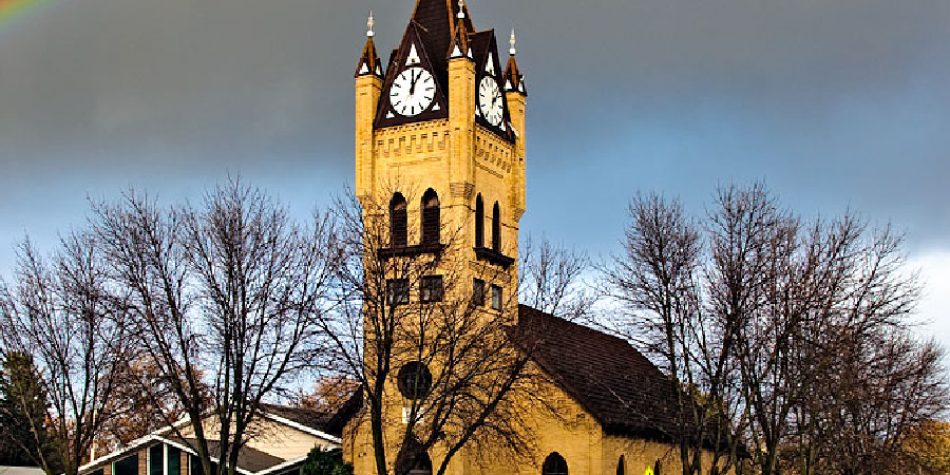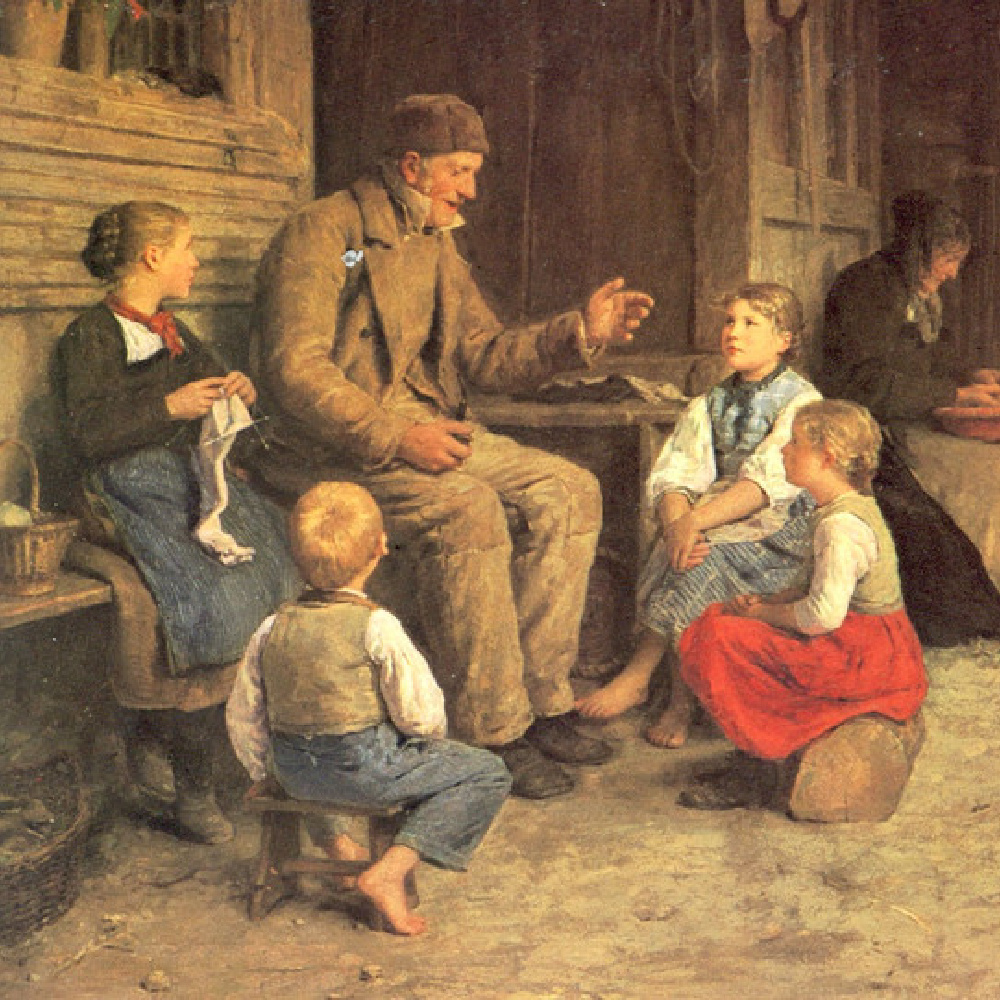When choosing to associate with a group, you have to consider the implications and effects the group has as a whole. In recent years our prophets and apostles have implored us to seek to understand the experience of our LGBT+ brothers and sisters. At a BYU devotional in 2017, and in regard to members of the Church with an experience under the LGBT+ acronym, Elder Ballard said, “We must do better than we have done in the past so that all members feel they have a spiritual home where their brothers and sisters love them and where they have a place to worship and serve the Lord.”
At the same time, pride celebrations are advertised by many as the best way to show LGBT+ people love and support. This juxtaposition has led some to the conclusion that the brethren are instructing us to use pride celebrations as the catalyst for showing “support” for LGBT+ people. But what message are we sending when we support such a movement?
Church members who engage with pride do so either oblivious to the more radical and sexual aspects of the movement or ignore them—writing them off as mere aberrations to the general purpose of the movement. You can individually decide to engage with pride and have the best intentions, but that doesn’t mean you have control over the totality of the message it sends. As one in the thick of squaring my sexuality and religious values, I ask you to consider the impact pride has on the most impressionable members of the Church.
The Loudest Message of Pride
The pride movement isn’t a monolith or even a structured organization. There are gradations of radicalism within the pride movement, and there’s not one single organization we can point to and critique. We can, however, look at the trends and loudest opinions coming from those who engage with it. One of the effects of pride is the increase in doctrinal uncertainty.
Ahead of the event, it received national criticism. In response to the backlash, the organization in charge of the event posted on Instagram that they made further efforts to ensure the event was family-friendly. This included having the performers only go by the first part of the drag queen’s name since many of them were sexual puns. Still, when videos of the event surfaced, a drag queen danced in explicitly sexual ways.
There are also events like the Loveloud music festival. Dan Reynolds of Imagine Dragons stands as an unofficial cultural leader of pride celebrations and puts on events like the Loveloud music festival. The goals of the event are two-fold: provide support for LGBT+ people, and campaign religious organizations like the Church to change their doctrine.
HBO funded a documentary that followed the creation of this event. At the climax of the film, there’s an introspective montage of Reynolds walking the grounds of Temple Square. The filmmakers juxtaposed these shots with footage from Elder Dallin H. Oaks’s talk “Love and Law,” in which he reaffirms the sanctity of marriage between man and woman. He gave this talk shortly after the first Loveloud festival. During the montage, they cut to Reynolds voicing his disappointment with Oaks’s message, as if to say, “We failed in our goal.” While it’s clear that cultural figures such as Reynolds have a genuine concern for LGBT+ people, it’s just as clear that they share a common goal: pressure the Church to change its doctrine regarding marriage.
Doctrinal Uncertainty
Pride celebrations have and continue to influence the culture of the Church. One of the effects of pride is the increase in doctrinal uncertainty and speculation. It’s all too common to run across members of the Church, with varying levels of activity, who entertain or sanction the idea of doctrine on the family changing to include same-sex unions or gender expansiveness. More often than not, these same church members are those who are also active in pride celebrations and view their political activism as a kind of missionary work. They take the more radical activists at their word that pride celebrations are the best way to show love, and they don’t dare to suggest other methods.
When we engage with the pride movement, whether intentionally or not, we are promoting the message that doctrinal change is the only acceptable way forward—or at least, that it’s a strong possibility. Please consider how spiritually damaging this message can be for gay/SSA and gender dysphoric Latter-day Saints.
Imagine you’re undergoing therapy, and your therapist helps you outline a plan of action to help you overcome some social anxiety you’ve been feeling. The plan is thorough, specific, and comprehensive. It outlines specific tasks for you to complete each day, goals to work toward, methods to overcome negative thought cycles, and a rough timeline for when to complete each thing. You both feel good about the plan, and you leave feeling motivated.
When you get back home, you get a text from your therapist:
“Oh, by the way, I may change my mind on all of what we talked about today before your next appointment.”
“You—what?” you ask.
“Yeah, I might decide that everything we outlined will actually make things worse for you. I haven’t decided yet, but it’s a pretty good possibility. Just do your best to stick to it, and we can discuss it at our next appointment. I’ll have my secretary message you if I change my mind.”
Would this make it easier or harder to follow the plan? Would it inspire or destroy confidence in your therapist? How are you supposed to follow the plan if it’s all but inevitable to change completely?
Now, raise the stakes to an infinite degree as we compare this analogy to the pursuit of eternal progression for gay Latter-day Saints. How are we supposed to commit ourselves to the gospel with the possibility of fundamental doctrinal changes hanging over our heads?
I didn’t grow up with that idea as a common talking point, but I can only imagine how difficult that would be to a young, impressionable, gay/SSA Latter-day Saint already having trouble finding their place in the Church. This type of thinking inevitably leads to a state of religious paralysis. Gay Latter-day Saints in this category likely wouldn’t want to leave the prescribed path of happiness they believe in so deeply, but committing themselves to something with such a flimsy foundation seems fruitless. So instead, they exist in religious limbo, too dedicated to Jesus Christ to leave the fold but too uncertain about the future of our doctrine to progress in a healthy direction. We talk at length about the mental health of gay/SSA and gender dysphoric Latter-day Saints, and rightly so. Aside from the obvious atrocity of familial shunning, what other factor could negatively impact their mental health as much as this type of religious whiplash?
Some see doctrinal speculation as a way of providing comfort for church members with these experiences. Squaring same-sex attraction with a covenant life isn’t easy, and it can cause real distress. When someone is feeling distressed, it’s natural to want to find someone or something accessible to blame. When someone we love is hurting, we feel a distinctive push to vindicate their suffering at any cost. In some cases, members of the Church with LGBT+ family or friends start viewing the doctrine of eternal families as an obstacle instead of the very reason for living the gospel. They start adopting what I call the “maybe someday” language, which acts as a band-aid for cognitive dissonance instead of setting them up for success on their spiritual journey.
The most compassionate thing we could do for gay/SSA and gender dysphoric Latter-day Saints is to treat them like any other church member—be forthright and understanding while discussing the doctrine of eternal families. Don’t relegate your message to a slew of speculation or empty promises. Teach the doctrine simply and with love, so we know what’s expected of us and can move forward in our pursuit to know Christ.
As Elder Ahmad S. Corbitt warned last General Conference, “These lesser, secular approaches are beneath you and can be lethal to the long-term faithfulness of your child … I know from personal experience that teaching your beloved child why we all desperately need Jesus Christ and how to apply His joyful doctrine is what will strengthen and heal him or her.”
How Can We Support?
There are better ways to support our LGBT+ brothers and sisters than engaging with pride celebrations. First, let us define our terms. What do our prophets and apostles mean when they implore us to “support” our LGBT+ brothers and sisters? “Support” is now champion and sanction.
“Kindness” has become “cheery, whole-hearted agreement.”
“Disagreement” now means “erasure.”
And “Love” is defined as “fully affirming my morality, choices, and actions.”
Not only does this make conversations more confusing, it makes them all but fruitless. Instead of talking with one another, we talk past each other, each using the same words to mean completely different things. Then, instead of arguing about the substance of an idea, we argue about definitions and then leave feeling frustrated rather than understood.
In the Book of Mormon, shortly after the prophet Lehi dies, Nephi speaks the words of his heart. “I am encompassed about, because of the temptations and the sins which do so easily beset me. And when I desire to rejoice, my heart groaneth because of my sins; nevertheless, I know in whom I have trusted. My God hath been my support; he hath led me through mine afflictions in the wilderness;”
Recognizing that it was sin that caused his heart to groan, Nephi explained how God supported him through those trials. God didn’t just comfort Nephi during his trials; He didn’t just tell Nephi what he wanted to hear or only listen to his groaning; He helped Nephi leave his sins behind and cling to Him.
Same-sex relationships aren’t the only place we find sin. There are a host of ways we distance ourselves from God. But few sins are more celebrated than same-sex relationships. Few diversions from the covenant path are more lauded than gender transitions.
I’m not suggesting that we abrasively find every opportunity to tell those committing sexual sin that they are. There are different ways to stand for truth in different scenarios. When we’re speaking with an individual personally, we should handle it much differently than if we’re posting something publicly. What I am suggesting is that we remain mindful of the importance of pointing others to Christ. No path will lead to more joy than the covenant path.
As Elder D. Todd Christofferson reminded us, “… the first commandment must be first because attempts at love that are not grounded in God’s truths risk harming the person or persons we are trying to help.” When we value being right more than helping an individual, we’ll just push them further away. At the same time, if we value cordiality more than truth, we’ll quickly abandon truth in an attempt to remain cordial.
The balance of grace and truth is the hardest one to achieve; it’s also the most important. Without grace, we’ll serve as barriers to others finding Christ; without truth, our grace will comfort others in their voyage away from Christ.
It’s one thing to tolerate others celebrating what they want; it’s another thing entirely to join them in a celebration that serves to cut against our religious beliefs—beliefs of which, by our own admission, help the most vulnerable to succeed.
If we truly believe this is Christ’s Church restored to the earth, it makes sense to believe in the reality of the plan of salvation. If we believe in the reality of the plan of salvation, it’s morally consistent to believe that marriage between a man and a woman sets us on the spiritual trajectory toward ultimate and lasting joy. If someone we love is deviating from that plan, why would we celebrate that? We can honor their choices, maintain the relationship as much as they’re willing, and genuinely cheer on their successes in life. But having an understanding of the plan of salvation means pointing our loved ones toward the Savior, not the world.

















